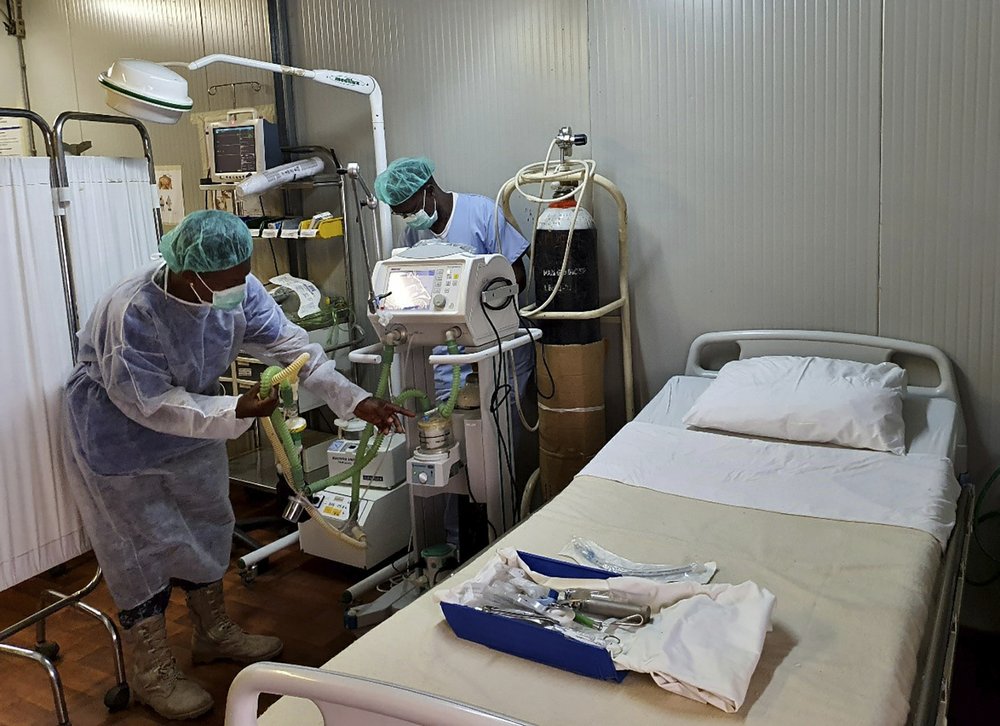
A spike in deaths in Darfur points to COVID-19 invisible spread

In the sprawling refugee camp of Darfur in the western region of Sudan, the elderly are sick and dying at astonishing rates, officials said.
In North Darfur’s provincial capital of El Fashe, some say they scroll through a dozen death announcements every day.
According to the doctors in the region’s few functioning hospitals, there is an influx of patients with symptoms like a lost of sense of taste, breathing problems and fevers.
The official causes for the untimely deaths remains unknown.
Humanitarian workers and medical personnel believe the corona-virus is spreading untracked and unchecked through Sudan’s most marginalized region where medical facilities are few and far between and where years of conflict have left around 1.6 million people crammed into refugee camps.
Public health officials have sounded the alarm since the beginning of the pandemic that the novel virus will take a disastrous toll on the world’s most vulnerable regions, particularly refugee camps where social distancing and hand washing prove impossible.
“People in the camps are suffocating, they can’t breathe, said Mohamed Hassan Adam, director of Abushouk displacement camp in North Darfur.
Just a section of the camp saw 64 unexplained deaths in one months, he continued to say. His four neighbors, all in their sixties, grew feeble and vanished one by one.
“They get exhausted then they die. There’s no way to tell what happened,” he said.
Some camps on the north saw 10 to 15 people a day dying in the past week compared to the normal rate of 5 to 10 a month, said Adam Regal, spokesman for a local organization that runs some camps.
“We’re losing a whole generation,” said Gamal Abdulkarim Abdullah, director of Zam Zam camp. He said he documented 70 dead the past week.
Darfur’s violent past from AL-Bashir’s brutal counterinsurgencies campaign that included mass rapes and killings has created distrust that further destroys government efforts.
Even after Al-Bashir’s fall, camp residents think the coronavirus is a conspiracy to “keep people in their homes where the old regime can come and kill them,” said Abdullah.
Sudan’s health care system is in disarray after years of war and sanctions while shortages of protective equipment and staff nationwide prompted strikes by medical workers as infections rise in their ranks.
Shortage of drugs and hard currency forces the sick to buy essential medicine out of pocket while the lack of fuel has made it increasingly difficult for doctors and patients to reach hospitals.
Darfur with a population of 9 million has only about 600 health facilities or one per 15,000 people.
According to doctors, quarantine centers have not more than a few dozen beds, two or three ventilators, cheap gowns and surgical masks for protection equipment.
Hassan Adam of Abushouk scoffed when asked whether people call the government hotline to report suspected cases. “The government barely knows we exist,” he said.
It hasn’t helped that local authorities have clamped down on reporting. After two female journalists published an article about the high mortality rate in El Fasher and lack of protective equipment for doctors, they were promptly harassed and threatened with arrest by a military officer, according to the Darfur Journalist Association.
Many saw the incident as an ominous sign.
Dr. Abdullah Adam, a radiologist is quoted saying, “When people are in the dark, they don’t take things seriously. ” I fear the worst is yet to come.”






